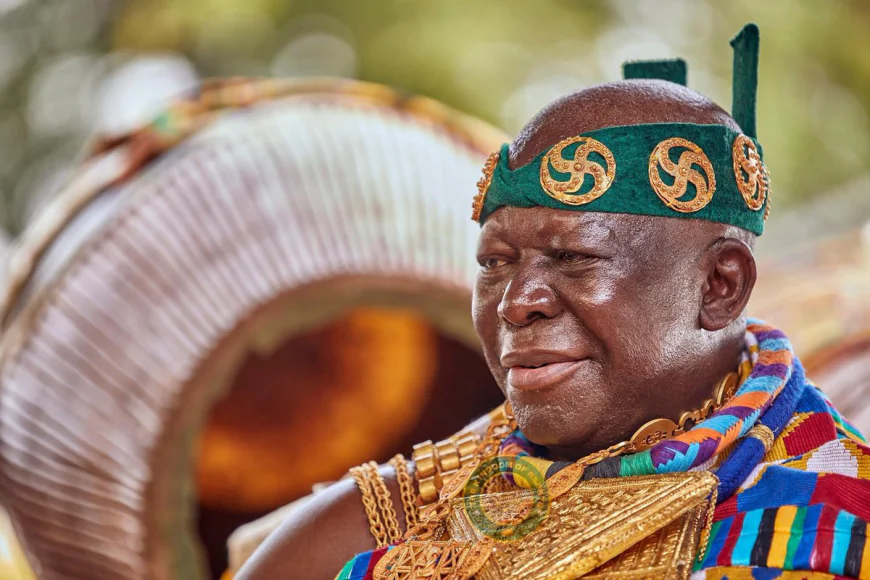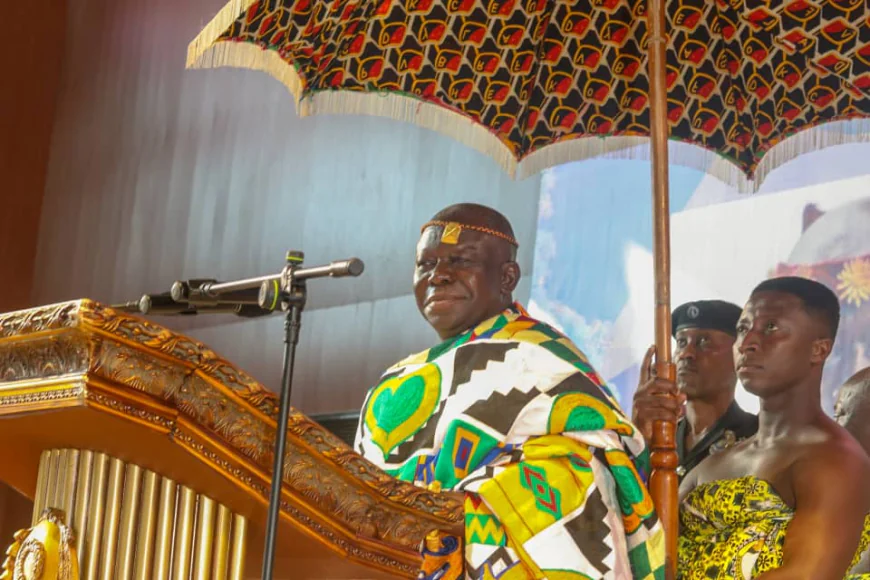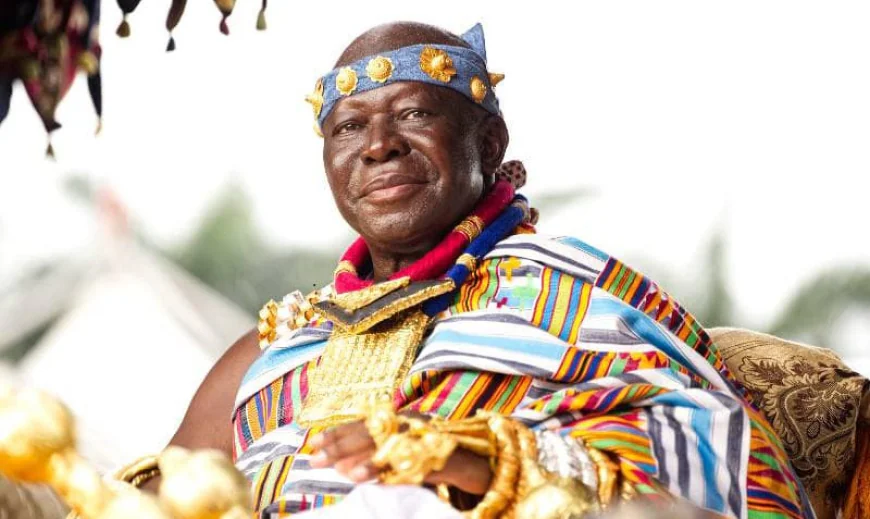Otumfuo Osei Tutu II: Biography of the 16th Asantehene – A Leader of Heritage and Progress
Otumfuo Osei Tutu II was born on 6th May, 1950, in Kumasi as Nana Barima Kwaku Duah to Asantehemaa Nana Afua Kobi Serwaa Ampem II and Nana Kwame Boakye-Dankwa, and he is the fifth of five children.

Otumfuo Osei Tutu II was born on 6th May, 1950, in Kumasi as Nana Barima Kwaku Duah to Asantehemaa Nana Afua Kobi Serwaa Ampem II and Nana Kwame Boakye-Dankwa, and he is the fifth of five children. Osei Tutu II succeeded to the throne of the 16th Asantehene on 26th April 1999 on the demise of his uncle Otumfuo Opoku Ware II.
Early Life and Education
He was trained for royalty since the age of five by his uncle, Hiahene Oheneba Mensah Bonsu. He attended Sefwi Wiawso Secondary School and Osei Kyeretwie Secondary School in Kumasi. He furthered his education to study accountancy and professional studies at the University of Professional Studies in Accra (formerly IPS).
You might also like: Asiedu Nketiah Biography: Ghana’s ‘General Mosquito’ Shaping Political Legacy
Professional Career & Return to Ghana
Before Otumfuo Osei Tutu II was made king, he gained international exposure. From 1981 to 1985, he was a senior consultant with Toronto's Mutual of Omaha Insurance and later in London with HPCC and formed Primoda Financial Services. In 1989, he returned to Ghana to begin Transpomech International, an auto transport company.

Enstoolment and Traditional Leadership
His coronation on 26 April 1999 was a grand cultural ceremony at Manhyia Palace, where he was sworn in with an oath by sword—a pledge to preserve the legacy of his ancestors. He has since united the spiritual and political influence of the Golden Stool.
Philanthropy and Education Initiatives
Otumfuo created the Otumfuo Education Fund, now the Otumfuo Osei Tutu II Foundation, which has empowered over one million students nationwide in five development areas of major significance: education, health, culture, water/sanitation, and business. The foundation has also recognized thousands of teachers with an award scheme.

Health, Infrastructure & Social Impact
Apart from scholarships, his foundation has funded important health programs like the "Heal Komfo Anokye" program for KATH hospital. It also engages in solving maternal healthcare and rural sanitation problems.
Conflict Resolution and Reforms in Governance
Recognized for his sagacious leadership, Otumfuo has been capable of settling over 500 succession and land conflicts, significantly reducing litigation within Ashanti. He has also sanctioned chiefs who involved themselves in the illegal sale of land, enhancing the accountability of traditional leaders.

Global Presence and Roles
He is the chancellor of the Kwame Nkrumah University of Science and Technology in Kumasi. He is also the Grand Patron of Ghana's Freemasons and holds the honorary rank of Sword Bearer in the United Grand Lodge of England. He is an advocate of peace, speaking at the United Nations and winning such honors as the Anglican Communion's St. Augustine Cross and the Pillar of Peace Award.
Cultural Champion and Modern Statesman
Under his reign, the Manhyia Palace Jubilee Hall was commissioned in April 2024 to host traditional and civic functions. Otumfuo has also revived Ashanti traditions, encouraged festivals like Akwasidae, and ensured international promotion of Ashanti heritage through partnerships with institutions like the British Museum.
A Legacy of Tradition and Progress
Otumfuo Osei Tutu II is a beacon of bridge between customary Ashanti culture and contemporary society leadership. His pathbreaking initiatives in education, healthcare, peace, governance, and culture enabled millions and positioned the Ashanti Kingdom as a model of tradition mixed with modernity.


